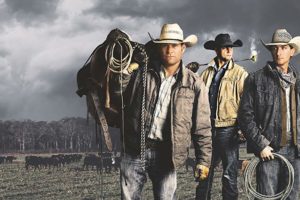“A leader’s greatest fear is not something that might happen to us, is it something that might happen in us.” (John Ortberg, Willow Creek Leadership Summit 2007)
Command those who are rich in this present world not to be arrogant nor to put their hope in wealth, which is so uncertain, but to put their hope in God, who richly provides us with everything for our enjoyment. Command them to do good, to be rich in good deeds, and to be generous and willing to share. In this way they will lay up treasure for themselves as a firm foundation for the coming age, so that they may take hold of the life that is truly life. (1 Timothy 6:17-19 NIV)
“I am a consumer. And I’m okay with that.”
This is a conversation I started in my head over a decade ago. I think I was at home on break from college when the reality of my part in the consumerist landscape hit me as I squirted shampoo into my hand. The dollop of shampoo made me think about how many shampoo bottles I’ve gone through since birth, and how many more I would go through in my lifetime. I’m sorry to say that there was something comforting to me about my patterns of consumption, which had been forged in the fiery furnace of consumption known as Orange County, California.
At the same time I was finding comfort in being a consumer, I was stepping into more of a leadership role in my local campus ministry group. Over the course of my time in college I had taken on greater responsibility in the group, leading small group Bible study and mentoring younger women. It wasn’t until later that I realized some of the unhealthy attitudes I was passing on alongside my growing knowledge of Scripture. One of my mentees and I would make trips to Target for fun. While I looked on those trips as quality time together, a chance for us to connect and talk about life (which they can be with the right heart), I think I was unknowingly sanctioning a lifestyle bend on mindlessly consuming, rather than one that is prayerful and intentional when it comes to resources.
In my post-college years, working with a campus ministry organization and then beginning graduate seminary education, I found myself mired in debt rather quickly. I had always been one of the “haves,” never struggling with money since there seemed to be an adequate supply of it in our family. Once I had limitations imposed on me due to inadequate funds, large tuition payments, and underemployment, I experienced the inner struggle that seems to characterize the American experience these days: there were things I wanted that I couldn’t afford. Rather than telling myself, “No!” I often would just put it on a credit card and trust that some day I would have a job that paid better and I could get out of debt. Debt was my dirty little secret.
The problem is, being in debt makes you a slave (Prov. 22:7). This is a truth that Dave Ramsey preaches wholeheartedly. He has been in debt and knows the pain of that kind of slavery. This is a truth I have known, too. And having been in that place of vulnerability (borne of stupidity rather than intentionality), I think that there is a unique struggle that people in vocational ministry feel when we are slaves to money, slaves to debt. When we do a job that really shouldn’t be about the money but we find ourselves in desperate need, we might make choices that favor stability and security at the expense of faith. Or, we might have boatloads of faith and eagerly desire to act on that but be so deep in student loans or consumer debt that we are sidelined from risk-taking. Like John Ortberg said, leaders have a fear that sometime might happen in us, that we might start to live for a “shadow mission,” that pulls our hearts away from their true purpose. I fear that our culture’s emphasis on acquiring as an end and our comfort with the slavery of debt might be a shadow mission we don’t always acknowledge.
Obviously, God is more than able to use us in whatever situation we might find ourselves. But I think he makes it clear that submitting ourselves to the yoke of slavery, be it sin of the heart or debt of the household, is not how he intends for us to live. He loves us far too much to desire us in chains.
Having made it out of my twenties and out of debt, I find myself rewriting my basic assumptions about consumption. Through blogs like “the Twenty Pieces Project” and “becoming minimalist,” as well as the documentary “Tiny: A Story about Living Small,” I’m seeking to meaningfully reform my thinking about patterns of consumption in my own life and in the world. I’m wondering if there are ways that I might be freer to pursue God and all that he has for me if I am willing settle into a lifestyle of simplicity. More on that as it unfolds…





Leave a Reply
Your email is safe with us.